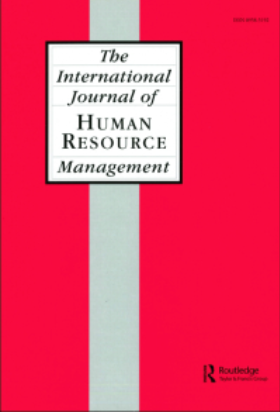在公共和私营机构中区分雇员的人格特征
IF 4.9
2区 管理学
Q1 MANAGEMENT
International Journal of Human Resource Management
Pub Date : 1999-01-01
DOI:10.1080/095851999340198
引用次数: 46
摘要
根据从希腊公共和私营组织收集的数据,本文研究了公共和私营部门员工之间个人特征的差异,这些差异最终影响了员工对其组织的态度和行为以及随后的绩效,特别是在组织承诺和忽视行为方面。研究结果表明,两组员工之间存在一些差异。在调查的十个人格特征中,只有三个(安全需求、收入需求和新教职业道德)在不同群体之间没有区别。这些发现表明,除了两个部门的环境和结构特征可能是态度差异的来源外,被公共部门吸引的人与被私营部门吸引的人具有不同的人格特征。不管差异的来源是什么,结果都表明需要改变……本文章由计算机程序翻译,如有差异,请以英文原文为准。
Personality traits discriminating between employees in public- and in private-sector organizations
Based on data collected from public and private organizations in Greece, this paper examines the differences in individual traits between public and private-sector employees, differences which eventually influence employees' attitudes and behaviours towards their organizations and their consequent performance, specifically in organizational commitment and neglect behaviour. The findings indicate that there are some differences between the two groups of employees. In only three out of ten personality characteristics examined here (security needs, pay needs and Protestant work ethic), are there no distinctions between the groups. These findings imply that, besides the environmental and structural characteristics of the two sectors which may be the source of attitudinal differences, it might also be that persons attracted to the public sector have different personality characteristics from those attracted to the private sector. Regardless of the source of differences, results point to the need for changing r...
求助全文
通过发布文献求助,成功后即可免费获取论文全文。
去求助
来源期刊
CiteScore
11.70
自引率
7.10%
发文量
77
期刊介绍:
International Journal of Human Resource Management is the forum for HRM scholars and professionals worldwide. Concerned with the expanding role of strategic human resource management in a fast-changing global environment, the journal focuses on future trends in human resource management, drawing on empirical research in the areas of strategic management, international business, organizational behaviour, personnel management and industrial relations that arise from: -internationalization- technological change- market integration- new concepts of line management- increased competition- changing corporate climates Now publishing twenty-two issues per year, The International Journal of Human Resource Management encourages strategically focused articles on a wide range of issues including employee participation, human resource flow, reward systems and high commitment work systems. It is an essential publication in an exciting field, examining all management decisions that affect the relationship between an organization and its employees. Features include; -comparative contributions from both developed and developing countries- special issues based on conferences and current issues- international bibliographies- international data sets- reviews

 求助内容:
求助内容: 应助结果提醒方式:
应助结果提醒方式:


